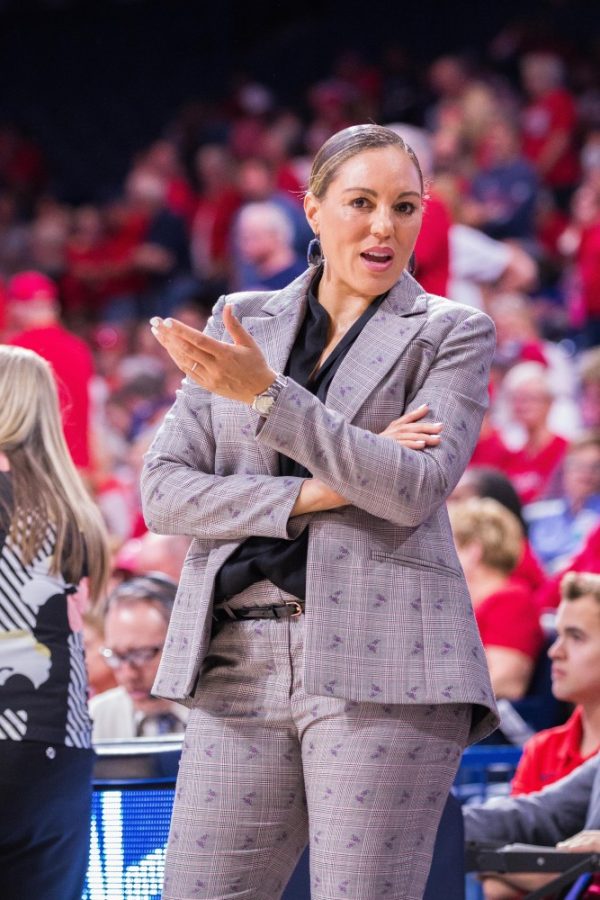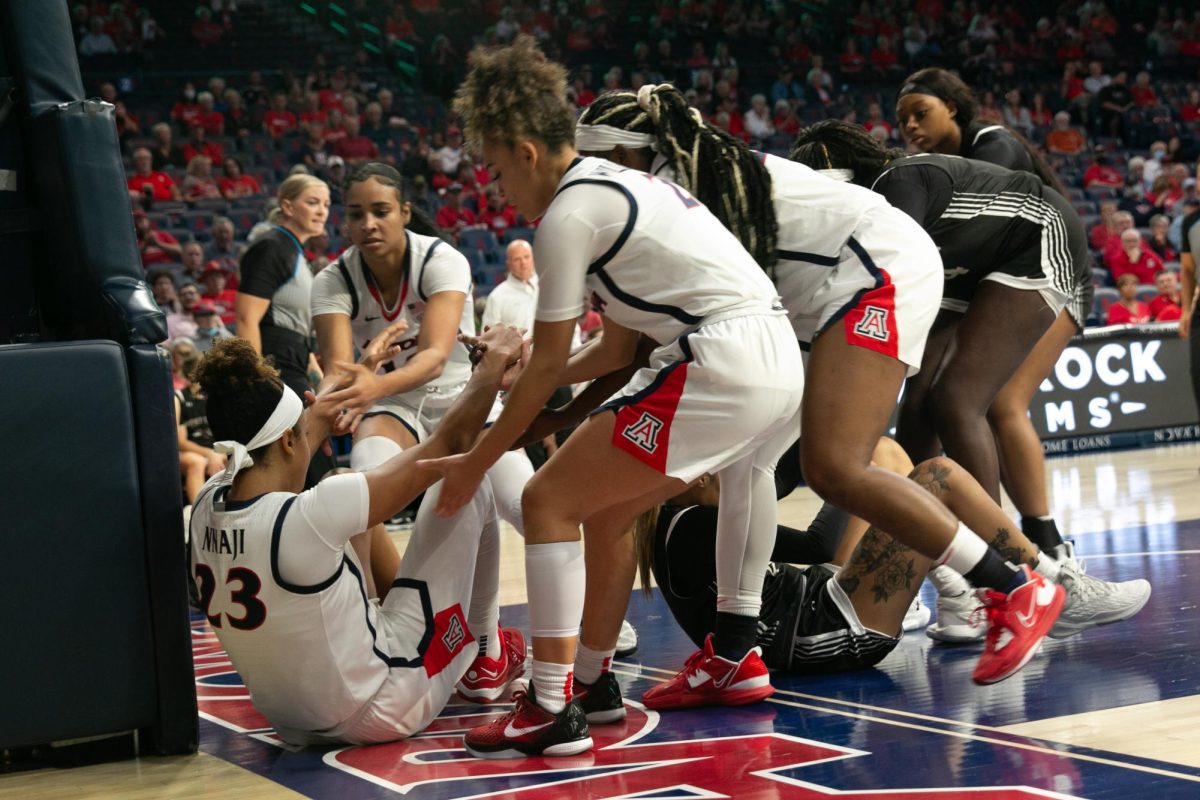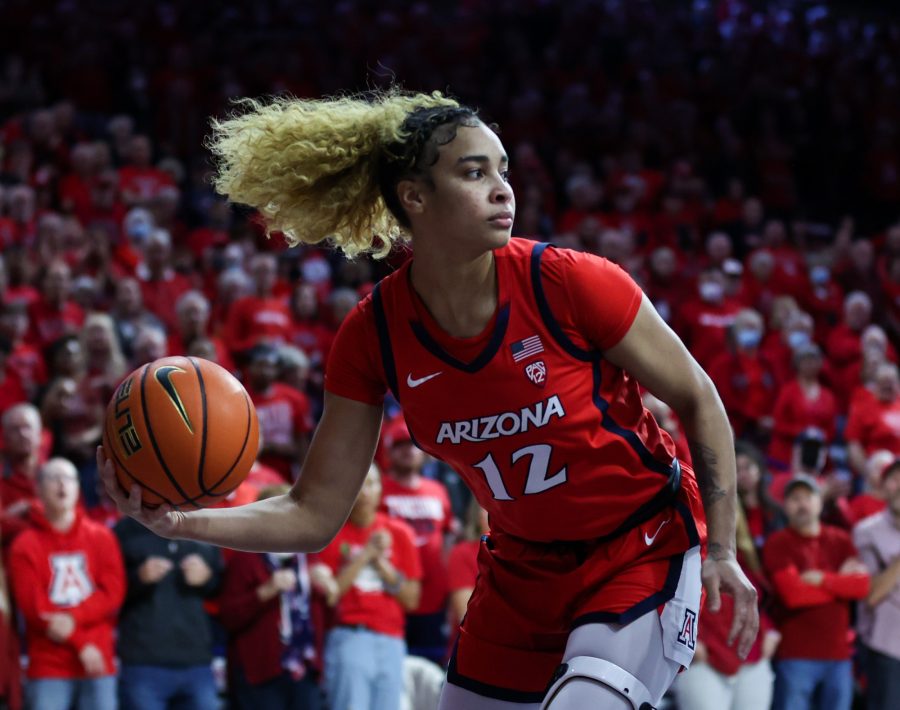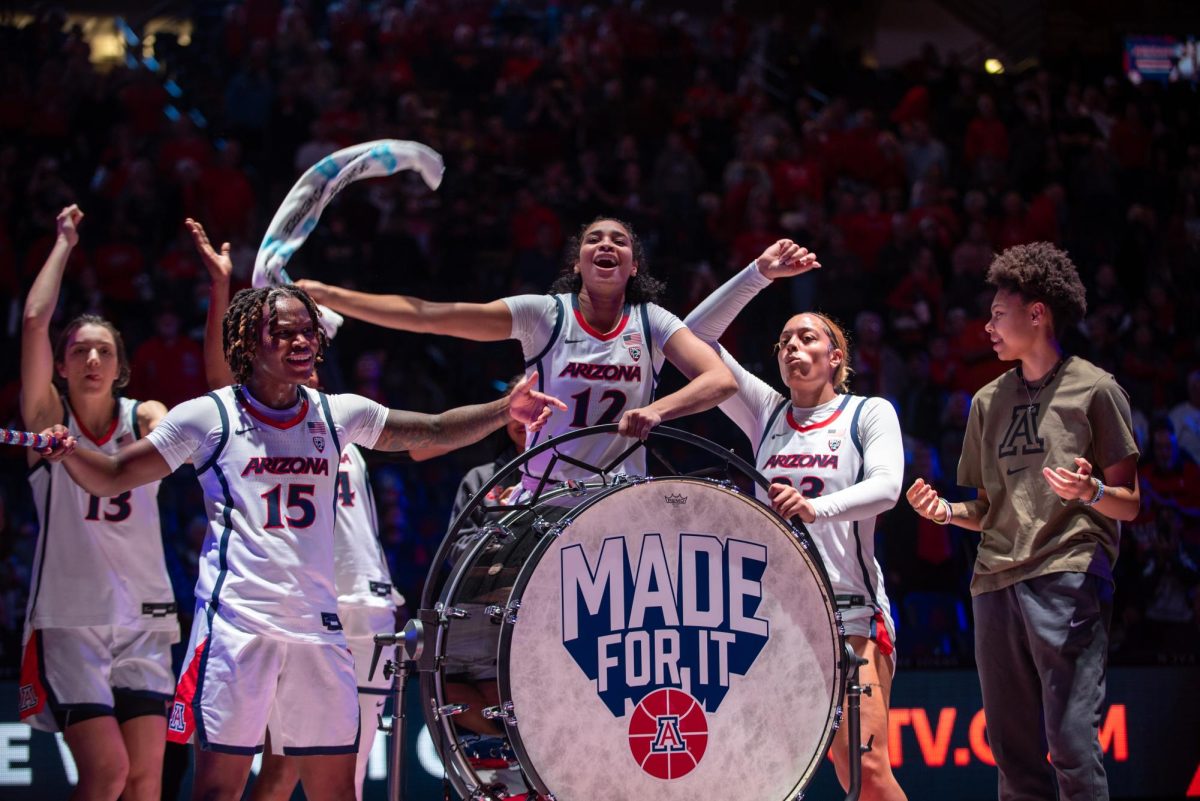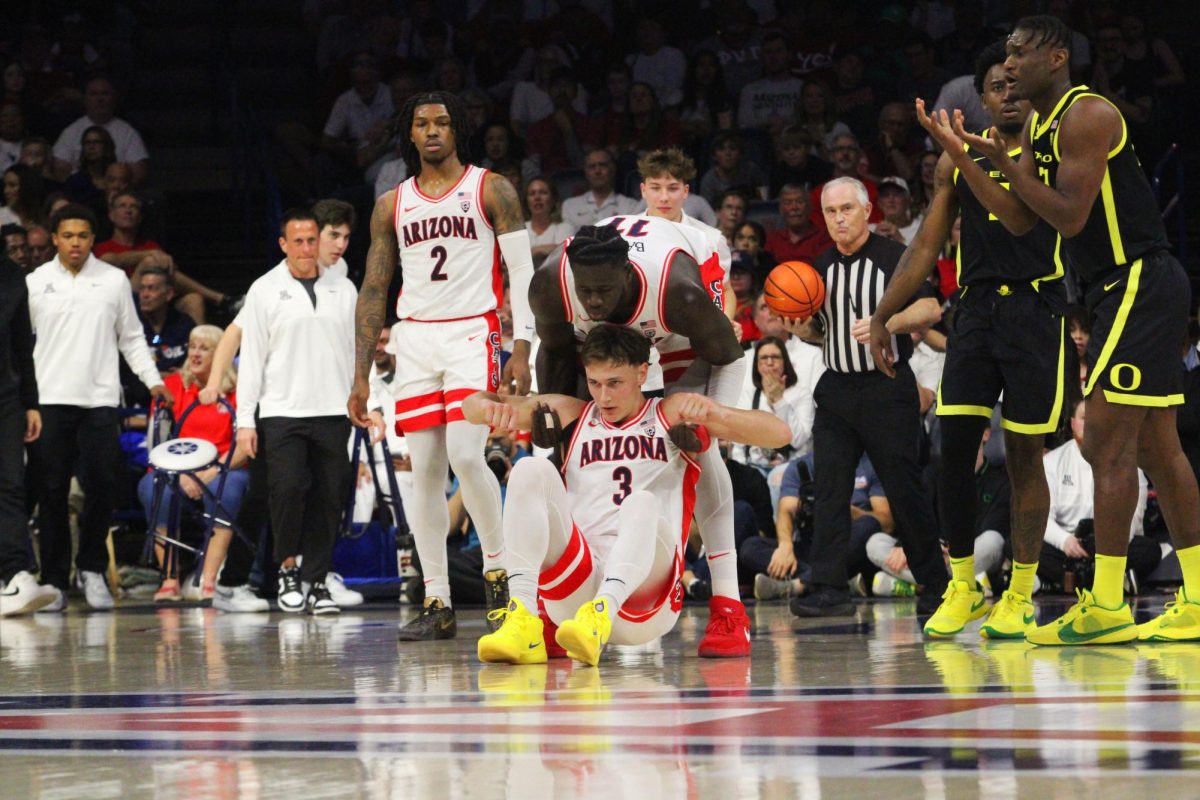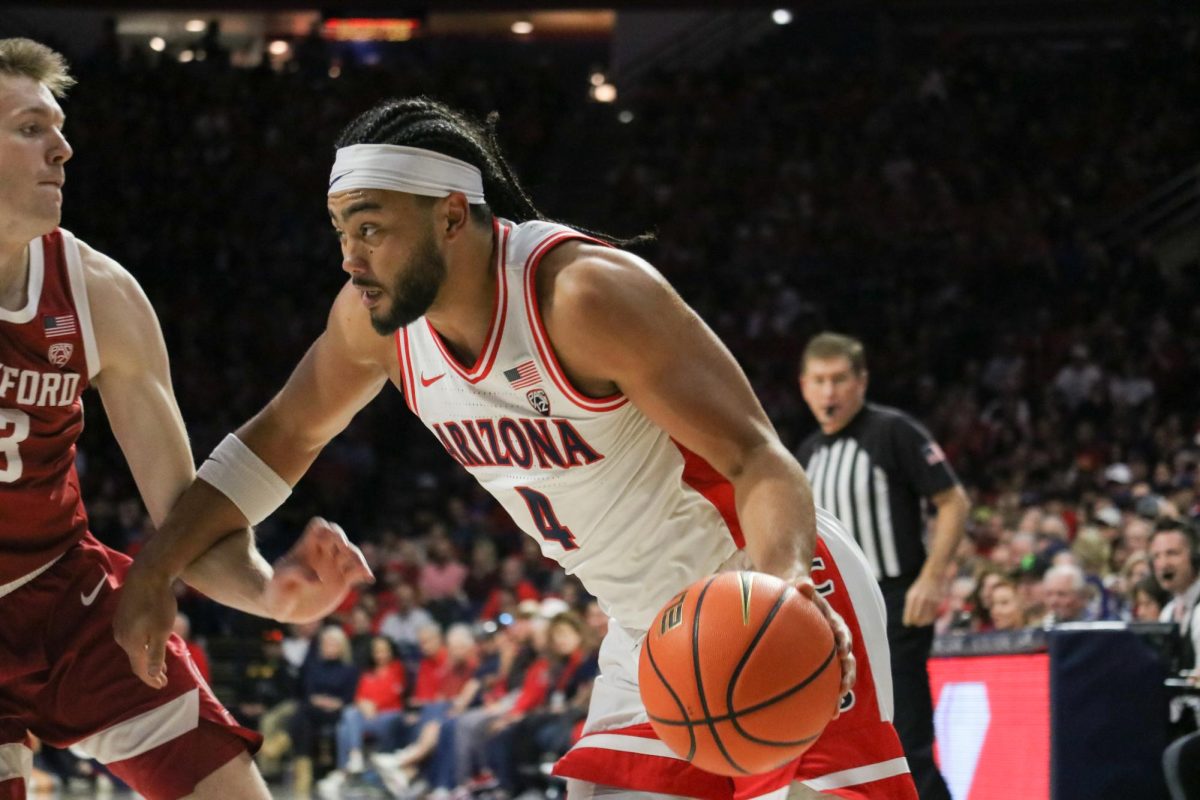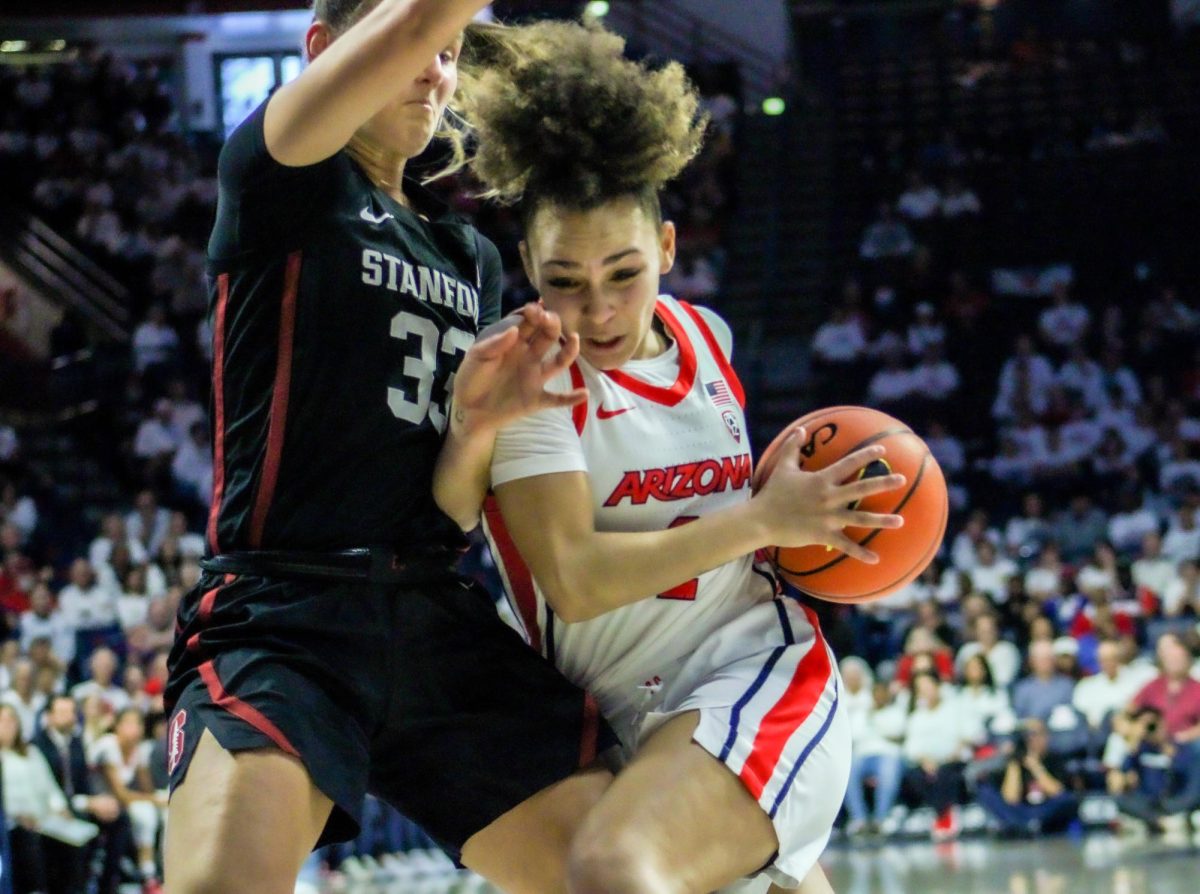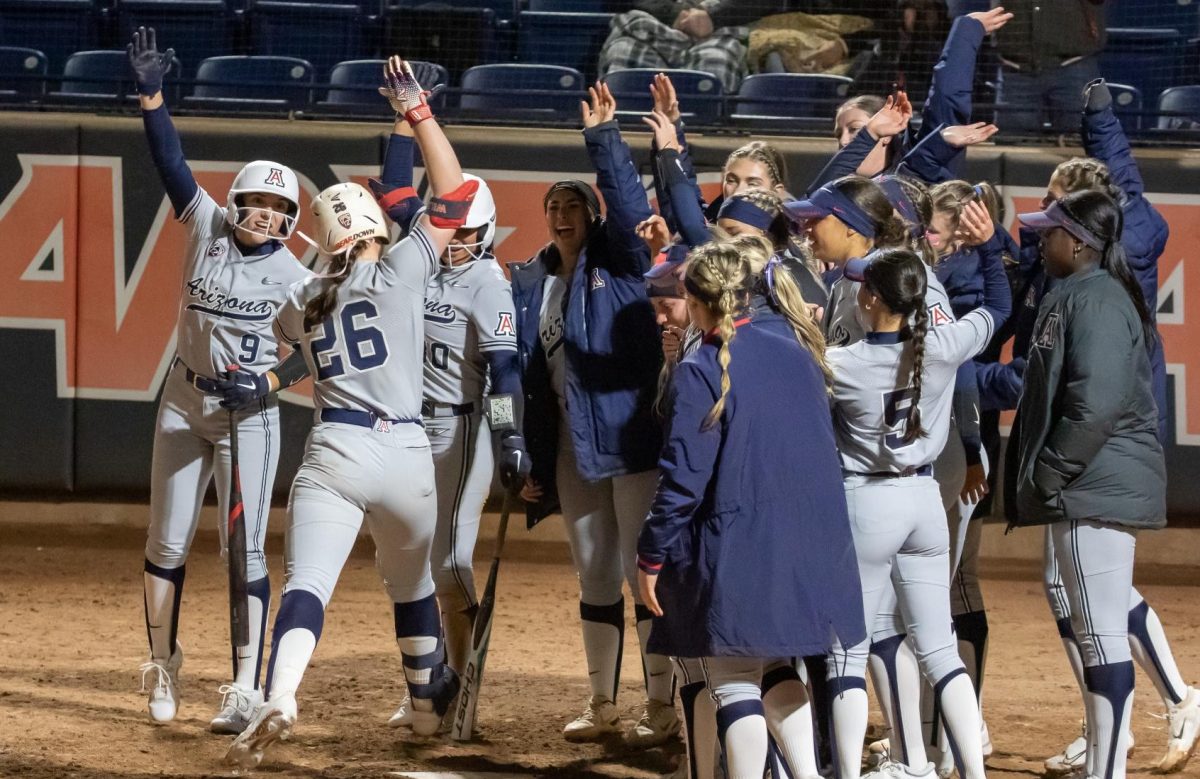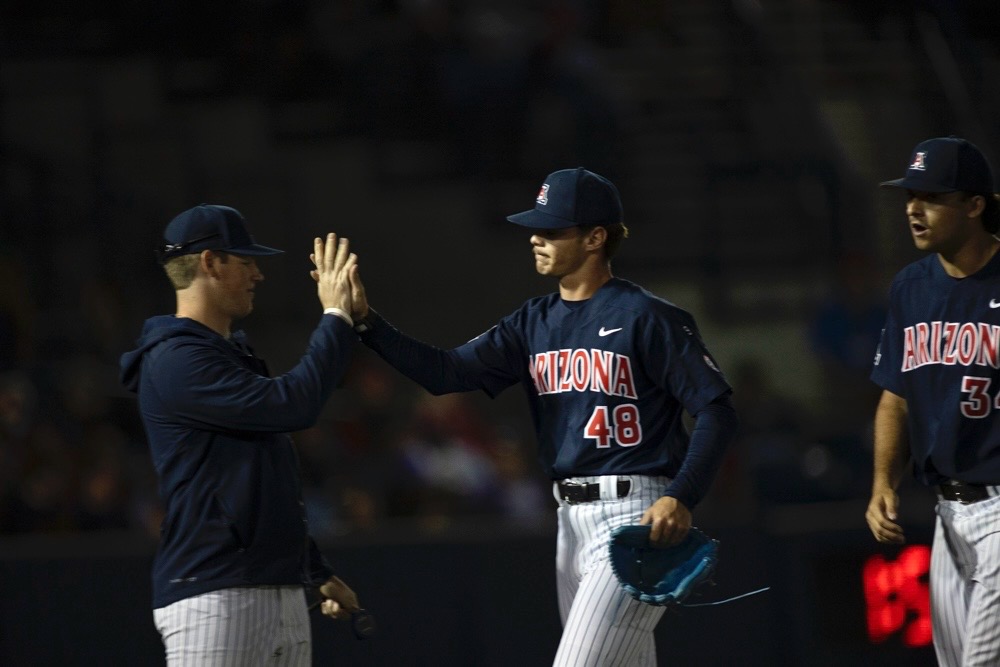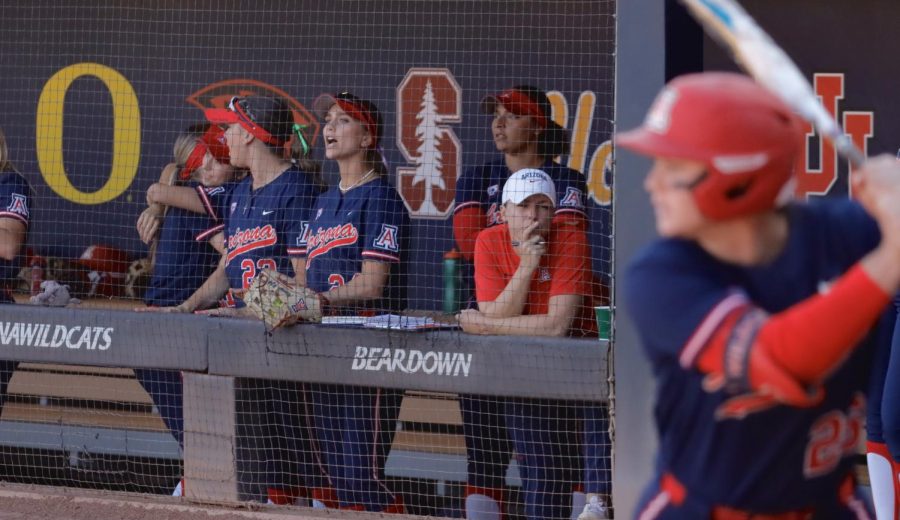Similar to a lot of collegiate sports programs right now, Arizona women’s basketball and head coach Adia Barnes have no idea when they’ll be playing their next game. They also don’t know when they will be able to begin practicing again under the NCAA’s 20-hour per week rule.
Despite all of the uncertainty and cloudy skies that surround the future of college sports, nobody is more confident in playing a season this year than Barnes.
“I have confidence in this country and that we’re doing the right thing,” Barnes said in a Zoom press conference on Friday, Aug. 14. “We’re not going to be dealing with this in five or six months.”
RELATED: A college football season, in the middle of a pandemic, was simply too ambitious
The Pac-12 made its decision on Aug. 11 to delay all sports within the conference until January 2021. Barnes said that she fully supports the league’s decision and was surprised to see other conferences not doing the same.
“I think, in the end, everybody will be on the same protocol,” Barnes said. “It’s just going to take different things for that to happen.”
Barnes credited her hopefulness to the fact that time, specifically with basketball, is on their side and will allow the Pac-12 to come up with an efficient way to play a season in January.
Arizona Athletic Director Dave Heeke said in a zoom press conference on Friday, August 14, that he has had conversations with Barnes and men’s basketball head coach Sean Miller about the possibility of putting the teams in an isolated bubble for the upcoming season. The same isolated bubble that has proven its effectiveness with the National Basketball Association and National Hockey League so far.
“In our Pac-12 call, [the bubble] was brought up and talked about,” Barnes said. “Maybe a scenario where we go one place for the weekend and that’s kind of like the bubble for that time and it’s like us, men’s basketball and there’s like five games every day in one spot where you’re isolated for that week.”
She also mentioned that the more traditional bubble format, similar to the NBA, was also being considered. Barnes, however, believes playing games in McKale Center could be a legitimate possibility in 2021.
“In five months, I really think we’ll play,” Barnes said. “Maybe we can’t sell out. Maybe it won’t look like that but I really have a feeling that we’ll have 10,000 people in the arena. With some kind of spreading, some kind of social-distance, temperature checks, masks. I really think we’re going to play.”
The potential of playing any sort of basketball in 2020 has been ruled out. The end of the fall semester is typically the time for teams to prepare for its conference schedule with non-conference games — an opportunity that the Wildcats may not have this year.
“We all want to play a non-conference (schedule,)” Barnes said. “For me personally, we don’t want to go into the Pac-12 as our first game against UCLA or USC. I’d rather it be a non-conference opponent.”
The Wildcats were slated to face a number of strong non-conference teams this year, including Texas, Gonzaga and Arkansas. Arizona was also set to play in a tournament in Las Vegas that would have featured LSU and Missouri State.
“There’s no doubt [the high-level of competition] helps,” Barnes said. “It helps for the chemistry. We have new players on the team. We just introduced a fifth-year player that’s going to be playing a lot, Trinity [Baptiste]. We’ve introduced some new faces like Bendu [Yeaney]. If she wins a waiver, she can potentially play. Shaina (Pellington) hasn’t played so for the chemistry of the team and cohesiveness, it helps.”
The postponement of the season and the COVID-19 pandemic has created a number of problems for Barnes and her team. Barnes confirmed that dual-sport athlete Lauren Ware will be making her decision this weekend on which sport she’ll play since the women’s basketball season will be overlapping with volleyball, denying the potential to play both sports this season.
Recruiting has also changed dramatically; women’s basketball is currently on a recruiting dead period, but Barnes said that the pandemic has hurt their recruiting efforts to this point.
“It hurts us because if you’re from Atlanta, you love us and you would have come here if you probably could have seen us and seen the campus, you might not come here anymore,” Barnes said. “What happens is that you end up choosing somewhere familiar or somewhere within five hours that you can drive to … we have a disadvantage because we don’t have a really strong state and we don’t have a whole bunch of people right down the street.”
Barnes has since embraced the new virtual aspect of her job and even believes that it can be something of the future.
“This is the new normal,” Barnes said. “I don’t know the next time we’ll be in the office. I think it’s going to be like this for the next six months. … As a coach, you can do everything on your phone, on your computer at home. I think it’s the new normal.”
Follow Jacob Mennuti on Twitter



